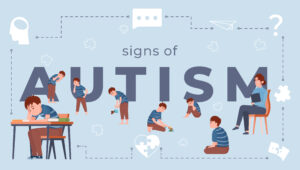Attention-deficit/hyperactivity disorder (ADHD) and autism spectrum disorder (ASD) often coexist, making diagnosis and treatment a complex process. These neurodevelopmental disorders share overlapping traits, but they also present unique challenges, especially when coupled with other conditions. Understanding the common comorbid disorders associated with ADHD and autism is crucial for families seeking appropriate care and support.
In this blog, we’ll explore the most common coexisting conditions, discuss their implications, and highlight the importance of consulting a neurologist in Dubai to ensure comprehensive care.
Understanding Comorbidity in ADHD and Autism
Comorbidity refers to the presence of one or more additional disorders occurring alongside a primary condition. With ADHD and autism, it is not uncommon for individuals to face multiple challenges. These coexisting conditions often complicate the diagnosis and management of symptoms, requiring a multidisciplinary approach for effective treatment.
For example, a child with ADHD may also experience anxiety, while an individual with autism may have gastrointestinal or sleep-related issues. Recognizing these patterns is essential for targeted interventions.
Common Comorbid Disorders in ADHD and Autism

1. Anxiety Disorders
One of the most prevalent comorbid conditions in both ADHD and autism is anxiety. Individuals with ADHD often struggle with impulsivity and hyperactivity, which can lead to feelings of stress or worry. Similarly, people with autism may experience heightened sensitivity to sensory stimuli, triggering anxiety in unfamiliar situations.
Symptoms of anxiety to watch for include:
- Persistent worrying or fear
- Avoidance of social interactions
- Physical symptoms such as headaches or stomachaches
Effective treatments may include therapy, mindfulness techniques, and medication under the guidance of a qualified neurologist in Dubai.
2. Depression
Depression frequently coexists with ADHD and autism, particularly in adolescents and adults. The challenges of social interactions, academic struggles, and feelings of isolation can contribute to depressive symptoms.
Signs of depression include:
- Loss of interest in activities
- Changes in appetite or sleep patterns
- Feelings of hopelessness or sadness
Early intervention and therapy can significantly improve the quality of life for those dealing with depression.
3. Learning Disabilities
Children with ADHD and autism often face learning disabilities, such as dyslexia or dyscalculia. These conditions affect the ability to read, write, or process numbers effectively, making academic success more challenging.
Teachers and parents can support children by:
- Using tailored educational strategies
- Providing extra time for tasks and exams
- Seeking assistance from specialists
4. Oppositional Defiant Disorder (ODD)
ODD is a common comorbid condition in children with ADHD. It is characterized by defiant, hostile, or argumentative behavior toward authority figures. While this condition may overlap with some autism traits, it is more closely associated with ADHD.
Strategies for managing ODD include:
- Behavioral therapy
- Consistent discipline and routines
- Positive reinforcement techniques
5. Sleep Disorders
Many individuals with ADHD and autism struggle with sleep issues. Hyperactivity and sensory sensitivities often lead to difficulty falling asleep or staying asleep. Sleep deprivation can exacerbate symptoms, affecting focus, mood, and overall health.
Tips for improving sleep include:
- Establishing a bedtime routine
- Limiting screen time before bed
- Using relaxation techniques
If these strategies do not help, consulting a neurologist in Dubai may provide further solutions.The Role of a Neurologist in Managing Comorbid Conditions
Given the complexity of comorbid disorders in ADHD and autism, it’s vital to seek professional guidance. A neurologist in Dubai can provide a comprehensive evaluation, identifying the root causes of coexisting conditions. With their expertise, they can recommend tailored treatment plans, combining medication, therapy, and lifestyle changes to address the individual’s needs.
Moreover, neurologists often work closely with psychologists, occupational therapists, and educators to ensure a holistic approach to care. This collaborative effort is essential for achieving the best possible outcomes.
Tips for Parents and Caregivers
Managing comorbid conditions in ADHD and autism can be overwhelming, but there are steps you can take to provide effective support:
- Educate Yourself: Learn about the specific challenges your child is facing to better understand their needs.
- Build a Support Network: Connect with other families and professionals who can offer guidance and resources.
- Promote Open Communication: Encourage your child to express their feelings and concerns.
- Seek Professional Help Early: Early diagnosis and intervention are critical for managing comorbid conditions effectively.
Conclusion
Understanding the common comorbid conditions associated with ADHD and autism is essential for families and caregivers. Anxiety, depression, learning disabilities, ODD, and sleep disorders are just a few of the challenges that may arise. Consulting the best neurologist in Dubai can make a significant difference, offering comprehensive care and tailored treatment plans.
By addressing these coexisting conditions early and holistically, individuals with ADHD and autism can thrive, overcoming challenges and achieving their full potential.



